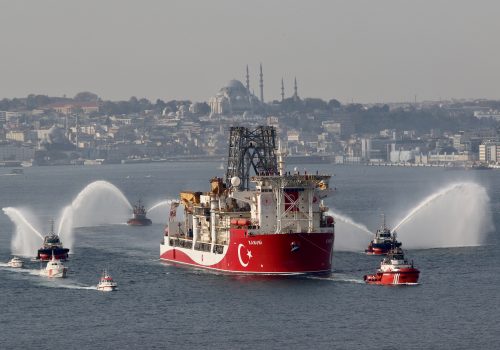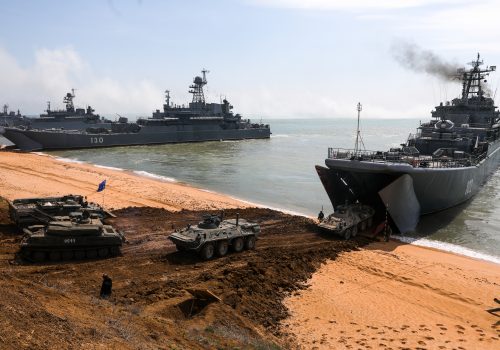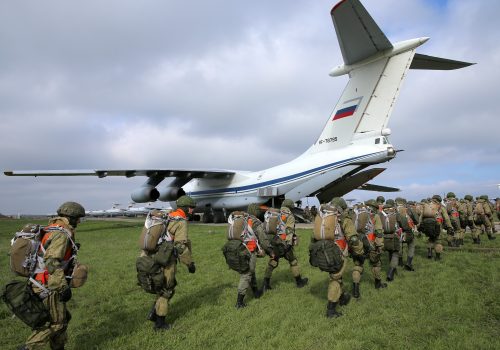Russia’s large-scale military build-up on Ukraine’s frontier last month brought renewed urgency to the Kremlin’s war on Ukraine. An important dimension to this escalation was the Kremlin’s increased pressure on the Sea of Azov and the Black Sea—strategically important for the wider Black Sea region (BSR) and crucial to navies of the region and global commerce. While some forces are drawing down, the Black Sea remains a pressure point on the region and particularly Ukrainian and US partners. What are the Kremlin’s real ambitions for the Black Sea region, and how is the sea being utilized for other geopolitical goals? How can Black Sea countries respond to Russian threats to regional security? Has existing Western support for Ukraine’s naval capabilities been sufficient?
Ambassador John Herbst, director of the Atlantic Council’s Eurasia Center, moderates a discussion with former Ukrainian Defense Minister Andriy Zahorodniuk, now head of the Center for Defense Strategies, Lt. Gen. (Ret.) Ben Hodges, Pershing Chair for Strategic Studies at the Center for European Policy Analysis, former Deputy Minister of Defense of Ukraine Alina Frolova, and Adm. (Ret.) Ihor Kabanenko, president of the Ukrainian Advanced Research Project Agency on how Ukraine has worked to address geopolitical challenges presented in the Black Sea region while the Kremlin wages war in Ukraine, and how Western partners can work to promote stability in the wider region.
RELATED experts


The Eurasia Center’s mission is to promote policies that strengthen stability, democratic values, and prosperity in Eurasia, from Eastern Europe in the West to the Caucasus, Russia, and Central Asia in the East.




